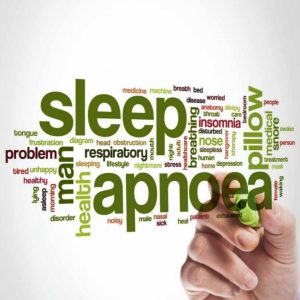- Home
- Editorial
- News
- Practice Guidelines
- Anesthesiology Guidelines
- Cancer Guidelines
- Cardiac Sciences Guidelines
- Critical Care Guidelines
- Dentistry Guidelines
- Dermatology Guidelines
- Diabetes and Endo Guidelines
- Diagnostics Guidelines
- ENT Guidelines
- Featured Practice Guidelines
- Gastroenterology Guidelines
- Geriatrics Guidelines
- Medicine Guidelines
- Nephrology Guidelines
- Neurosciences Guidelines
- Obs and Gynae Guidelines
- Ophthalmology Guidelines
- Orthopaedics Guidelines
- Paediatrics Guidelines
- Psychiatry Guidelines
- Pulmonology Guidelines
- Radiology Guidelines
- Surgery Guidelines
- Urology Guidelines
Sleep Apnea Treatment Tied to Improved Sex Life

Sleep apnea treatment involving continuous positive airway pressure (CPAP) therapy may lead to improved quality of sexual life in adults, suggests a study published in the journal JAMA Otolaryngology-Head &Neck Surgery.
Apnea is a common disorder in which there is disrupted or shallow breathing during sleep and has long been associated with sexual dysfunction. In men, it is linked to erection and ejaculation problems and in women, it is associated with vaginal dryness and painful intercourse. Obstructive sleep apnea reduces the sexual quality of life (QOL) as a result of reduced libido and intimacy.
Sebastian M. Jara and associates conducted a study to find out the association of long-term continuous positive airway pressure with the sexual quality of life in patients with sleep apnea
The researchers analyzed data from 182 men and women with newly diagnosed sleep apnea. They were all prescribed nighttime treatment with masks connected to a machine that provides continuous positive airway pressure (CPAP) that splints the airway open with an airstream so the upper airway can’t collapse during sleep.
Use of CPAP treatment objectively measured by the number of hours per night. Users of CPAP were defined as patients who used CPAP treatment for more than 4 hours per night, and nonusers were defined as patients who used CPAP treatment for fewer than 0.5 hours per night.
The study found that after one year, 72 patients who continue to CPAP treatment had greater improvements in sexual quality of life than the 110 people who didn’t keep up with treatment.
The improvement was found to be negligible for men but more effective in women.
Read Also: Sleep Apnea patients not using CPAP at higher risk of heart failure
“At this point, it’s not clear why we saw such a large improvement in the sexual quality of life in women but no improvement in men, especially given that other studies have shown improvement in men,” said lead study author Dr. Sebastian Jara
The study concluded that successful CPAP use may be associated with improved sexual quality of life which revealed a large improvement in women but no improvement in men.
For more reference log on to https://jamanetwork.com/journals/jamaotolaryngology/article-abstract/2681628?resultClick=1

Disclaimer: This site is primarily intended for healthcare professionals. Any content/information on this website does not replace the advice of medical and/or health professionals and should not be construed as medical/diagnostic advice/endorsement or prescription. Use of this site is subject to our terms of use, privacy policy, advertisement policy. © 2020 Minerva Medical Treatment Pvt Ltd